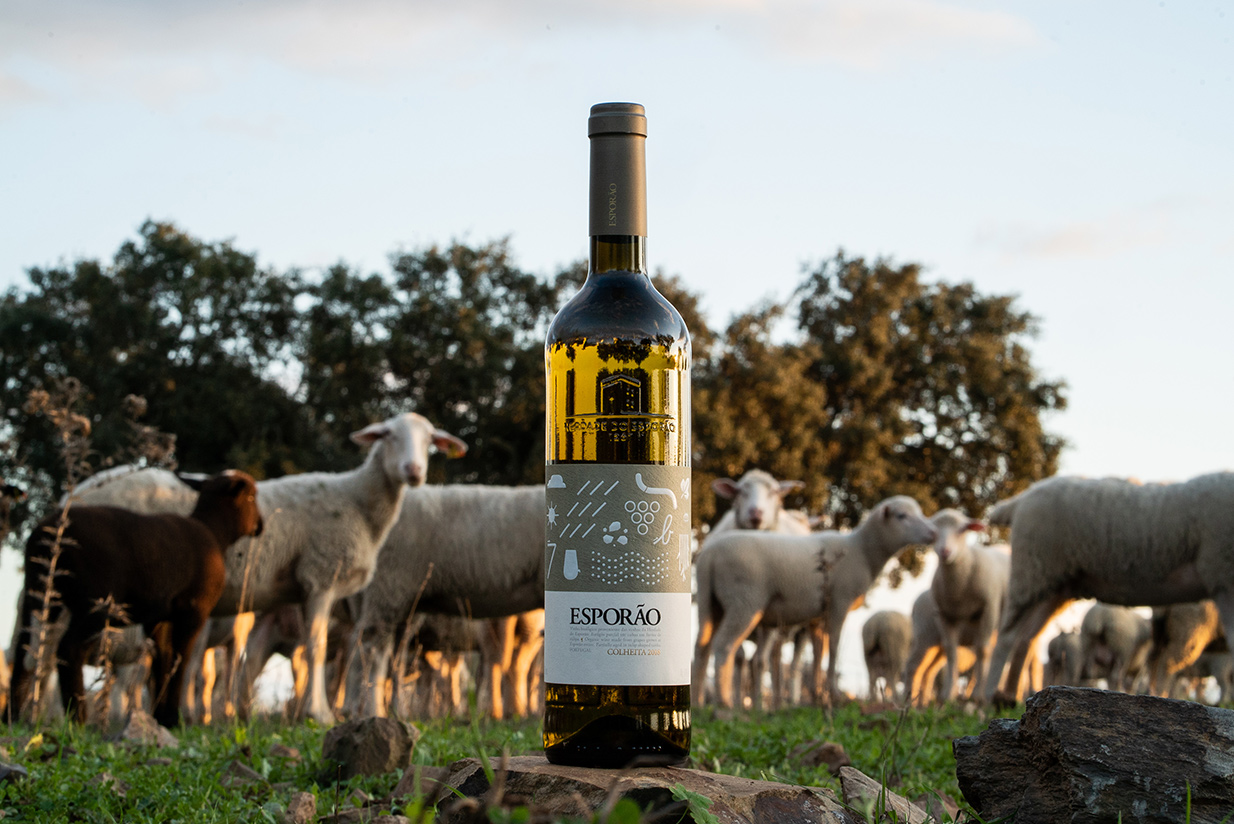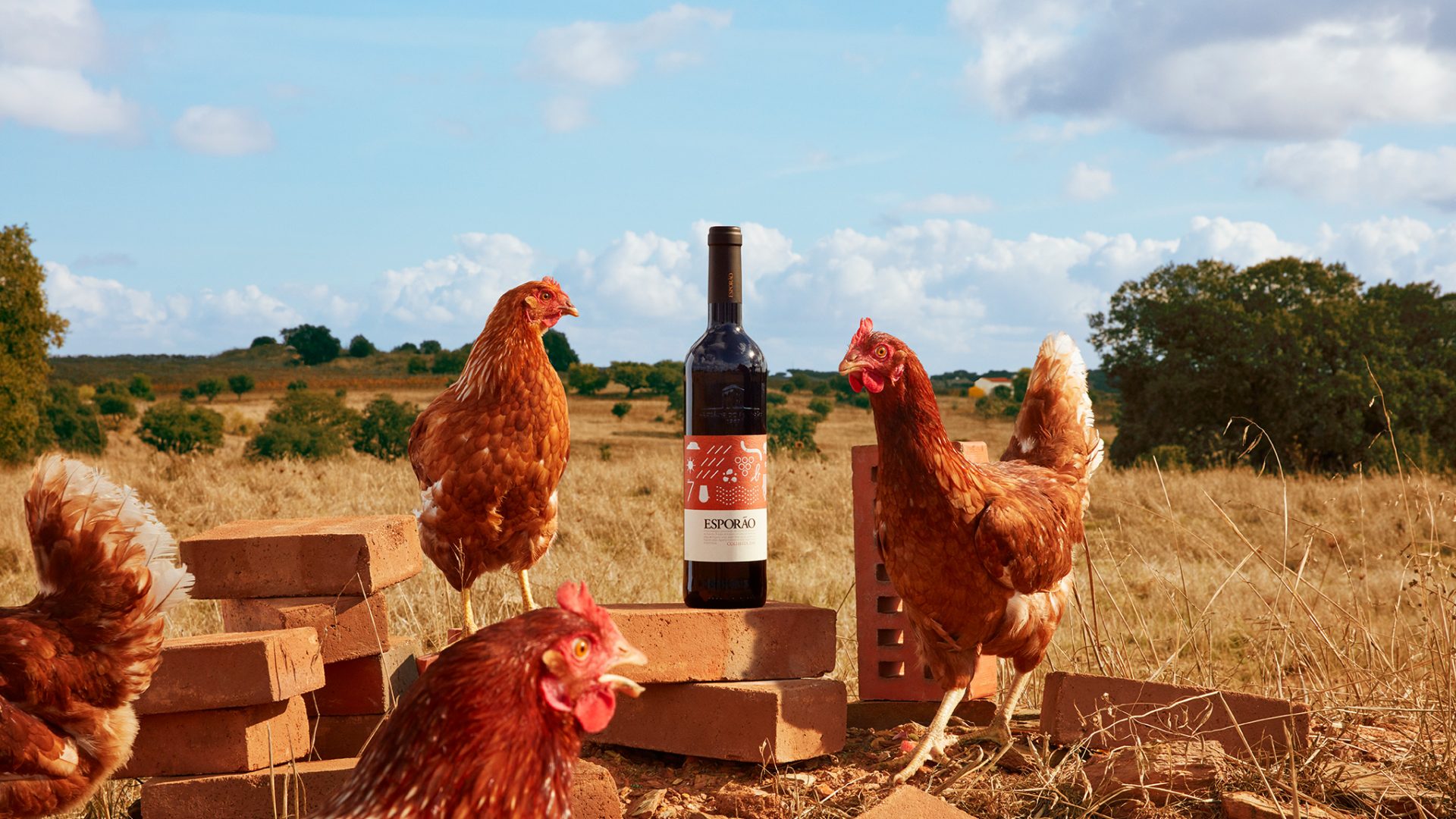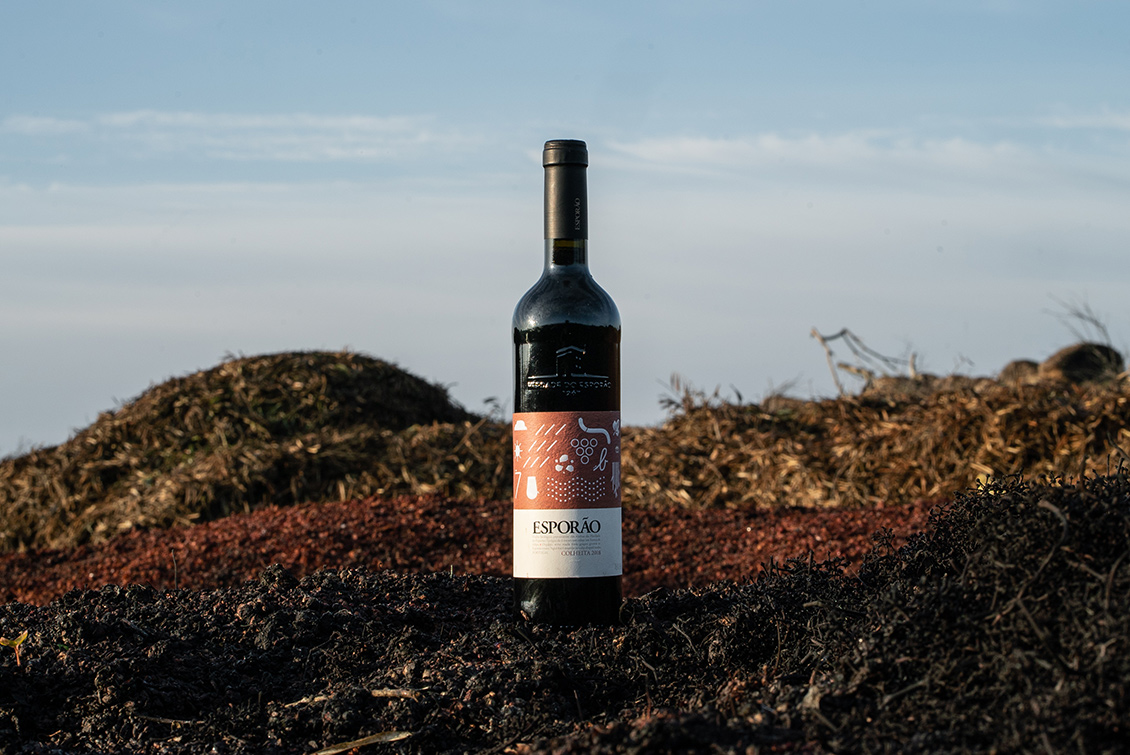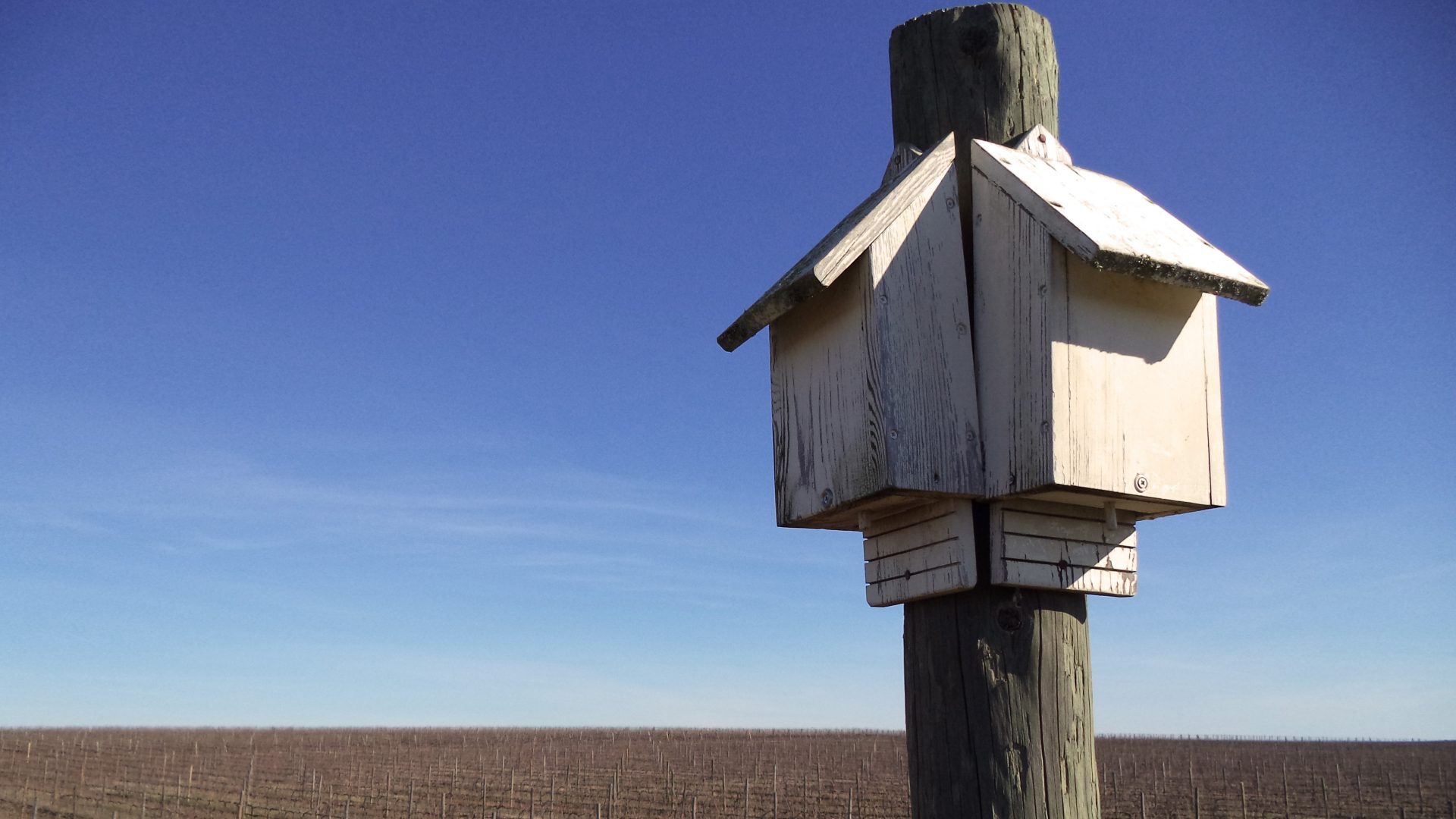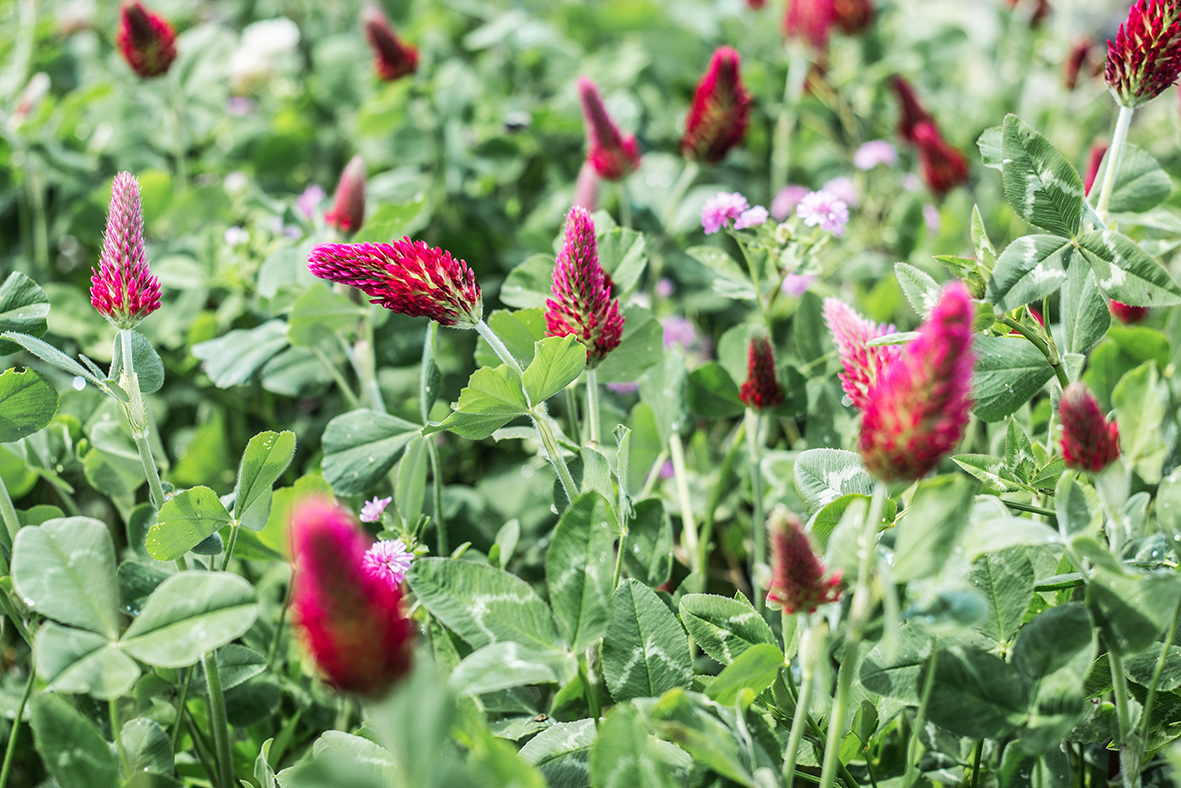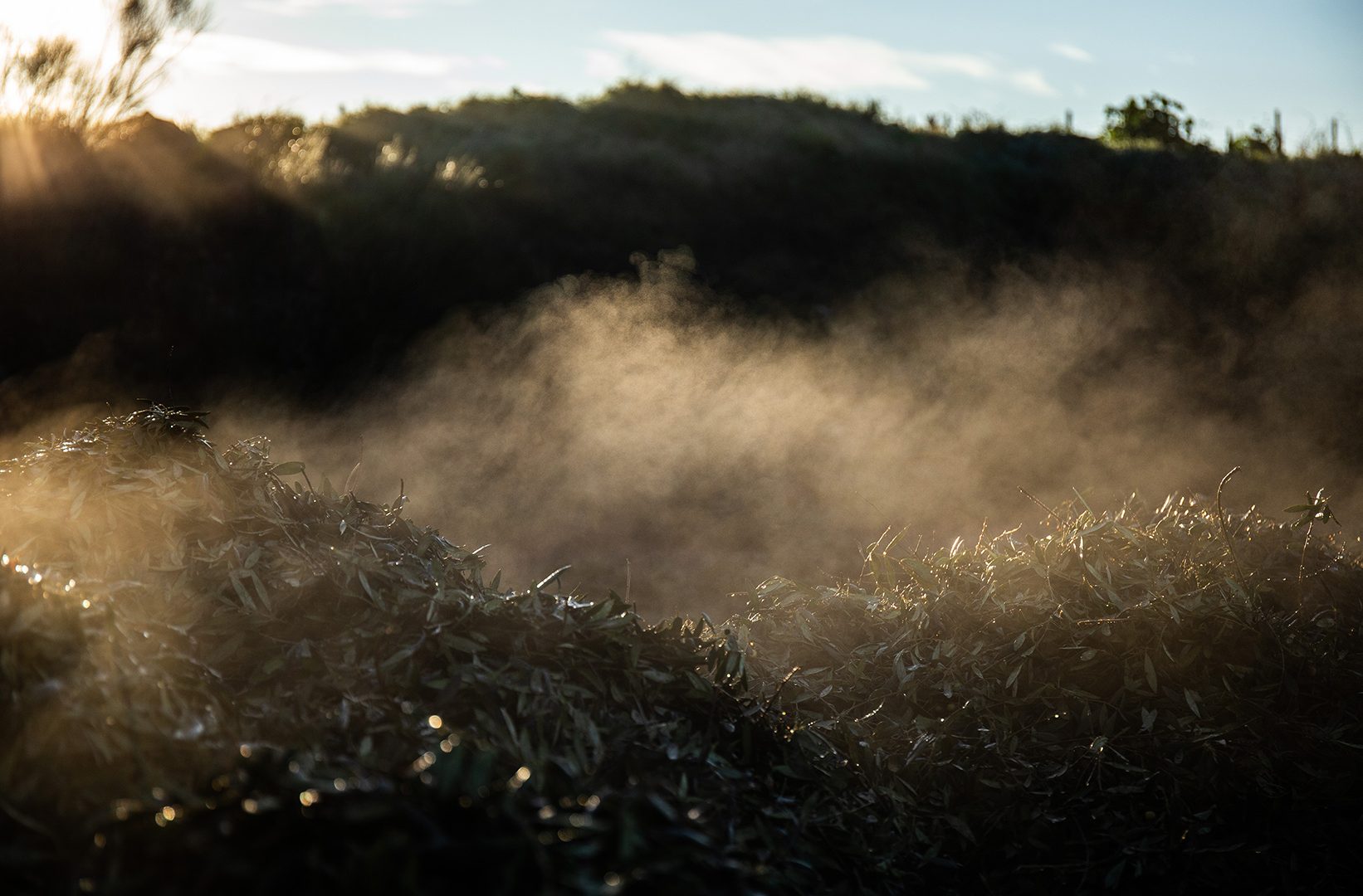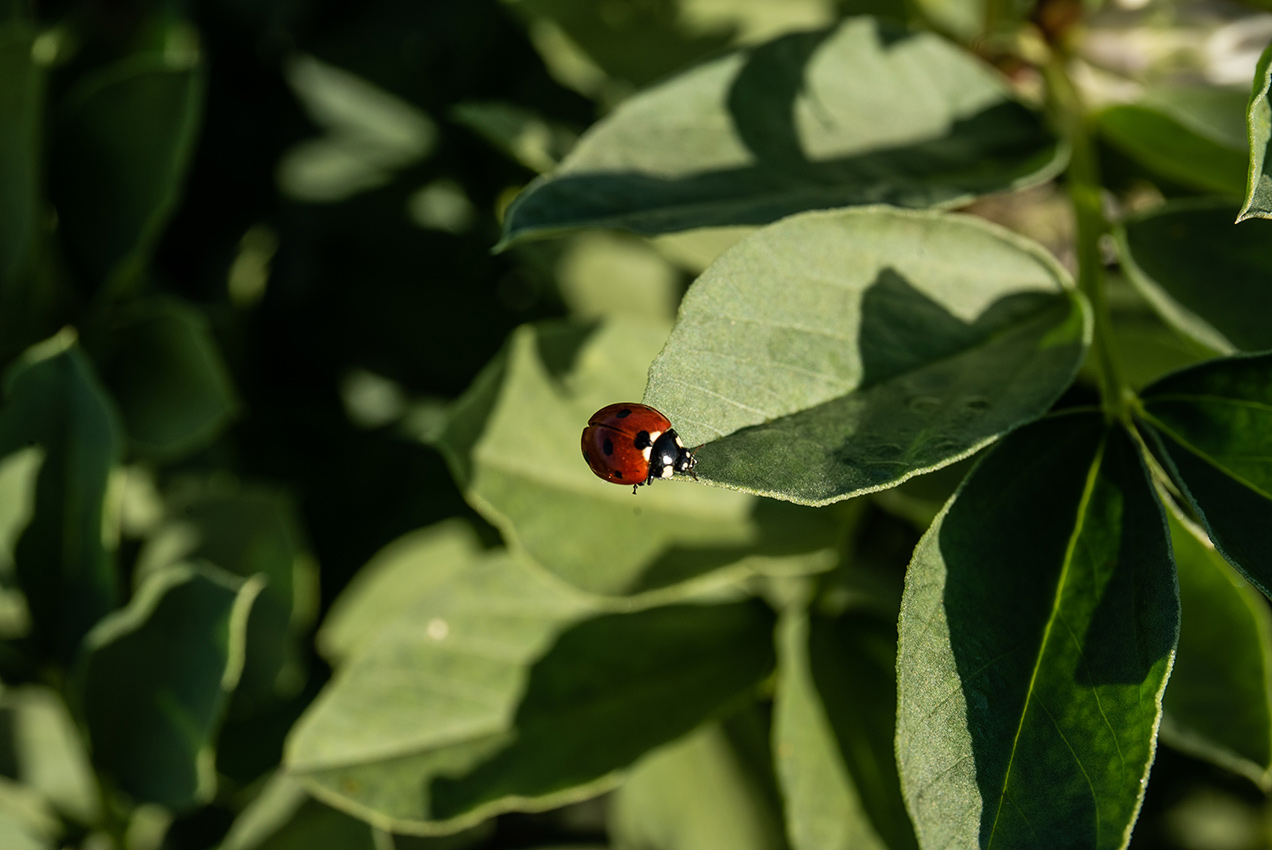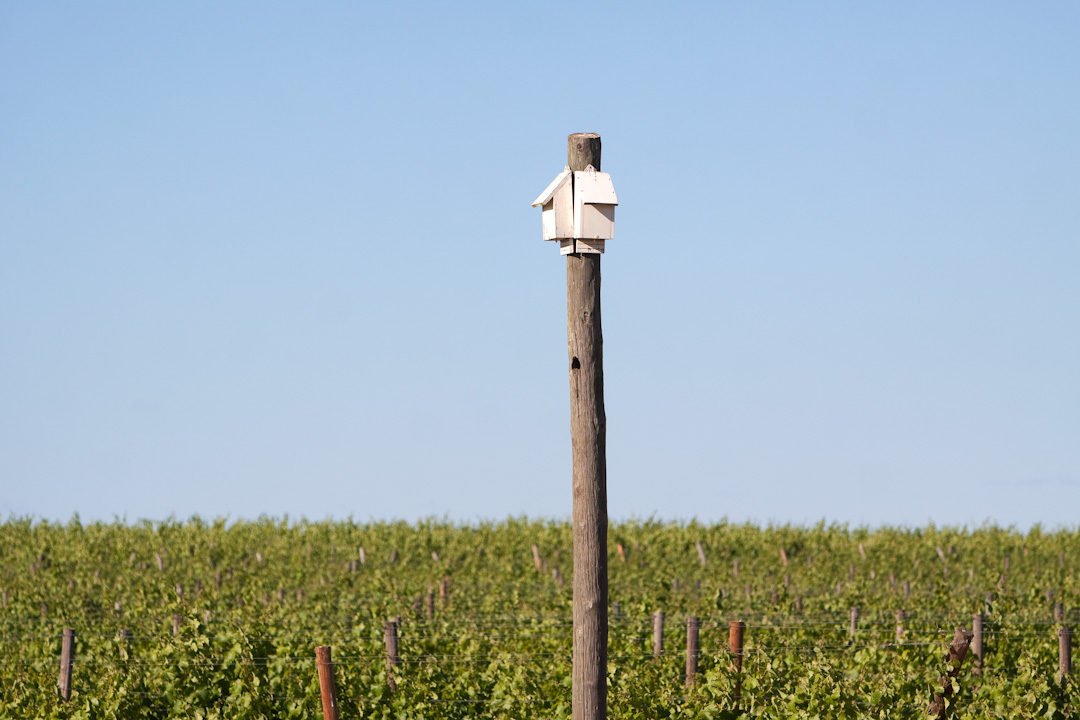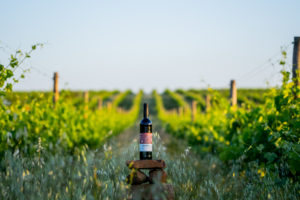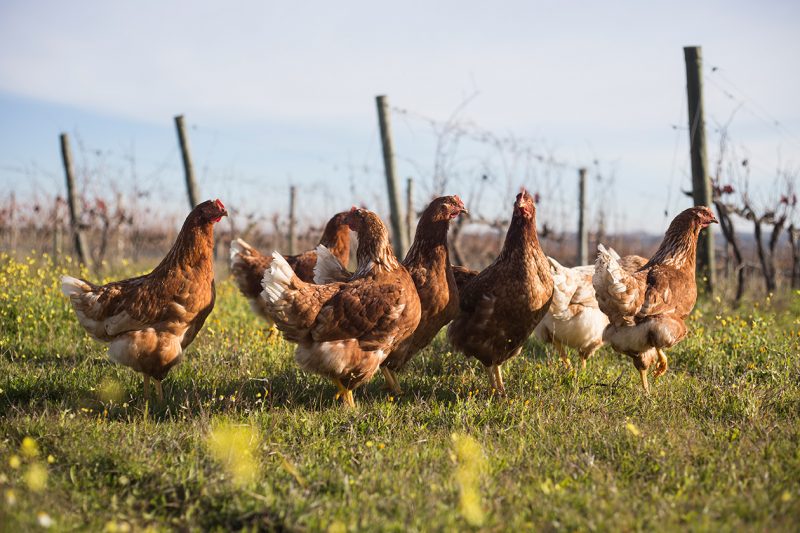
Ladybirds are the most familiar auxiliary organisms among farmers and one of the most common at Herdade do Esporão, not only due to their pleasant and colorful appearance but also due to their function. They are able to eat approximately a hundred insects each day.
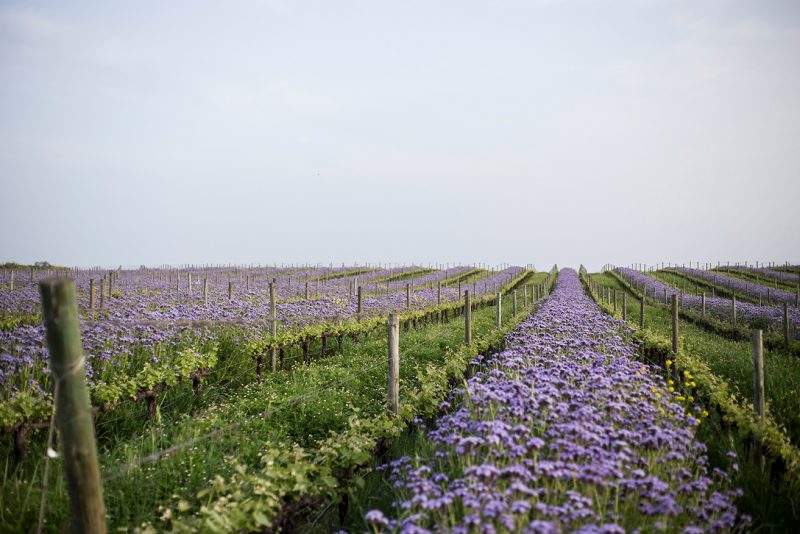
The green cover of the dividing lines entails planting cover crops, letting these develop temporarily or permanently, on all or part of the vineyard’s surface. A vineyard’s green cover can be permanent or temporary, planted with a single or various plant species, using the flora that grows in the site.
At Herdade do Esporão, after each harvest, we assess which seeds to use. In the spring, our vineyards are filled with color from the clovers, bean plants and spontaneous vegetation.
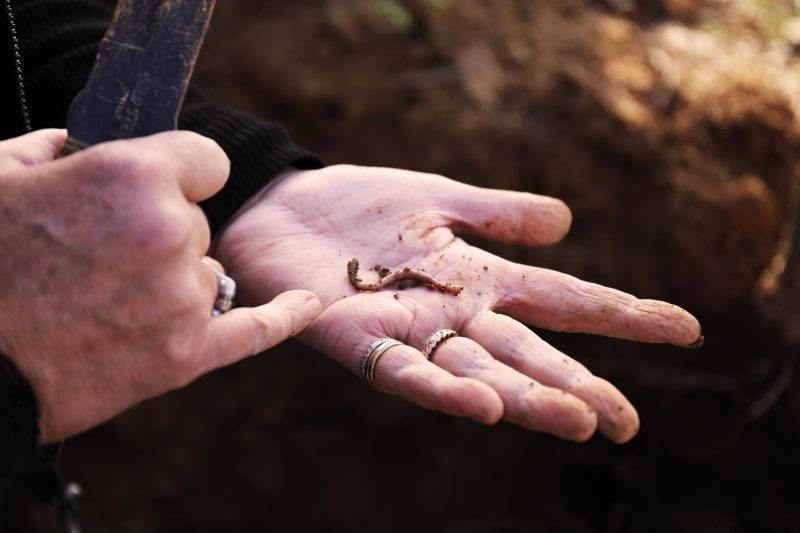
Some worms can be environmental bioindicators, an important tool to evaluate impacts on ecosystems.
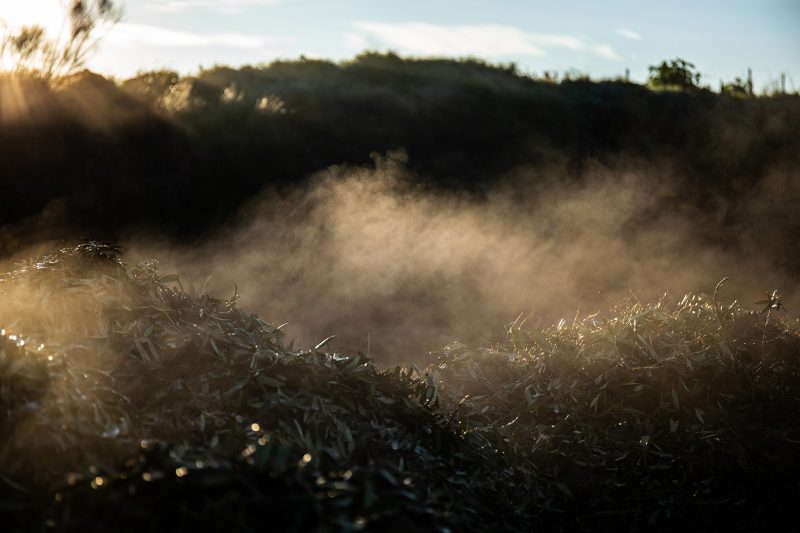
In the end, this creates a compound, produced naturally, rich in nutrients that are essential to our crops and help us maintain soil fertility, while also recycling all our agricultural surplus.
Creating compost helps us eliminate seeds and other bodies that spread weeds and pathogens, and speeds up the transformation of matter into nutrients for our plants. In terms of soil, compost improves drainage and aeration, stimulates biological activity, increases water reserves and nutrients, and makes the earth easier to farm.
